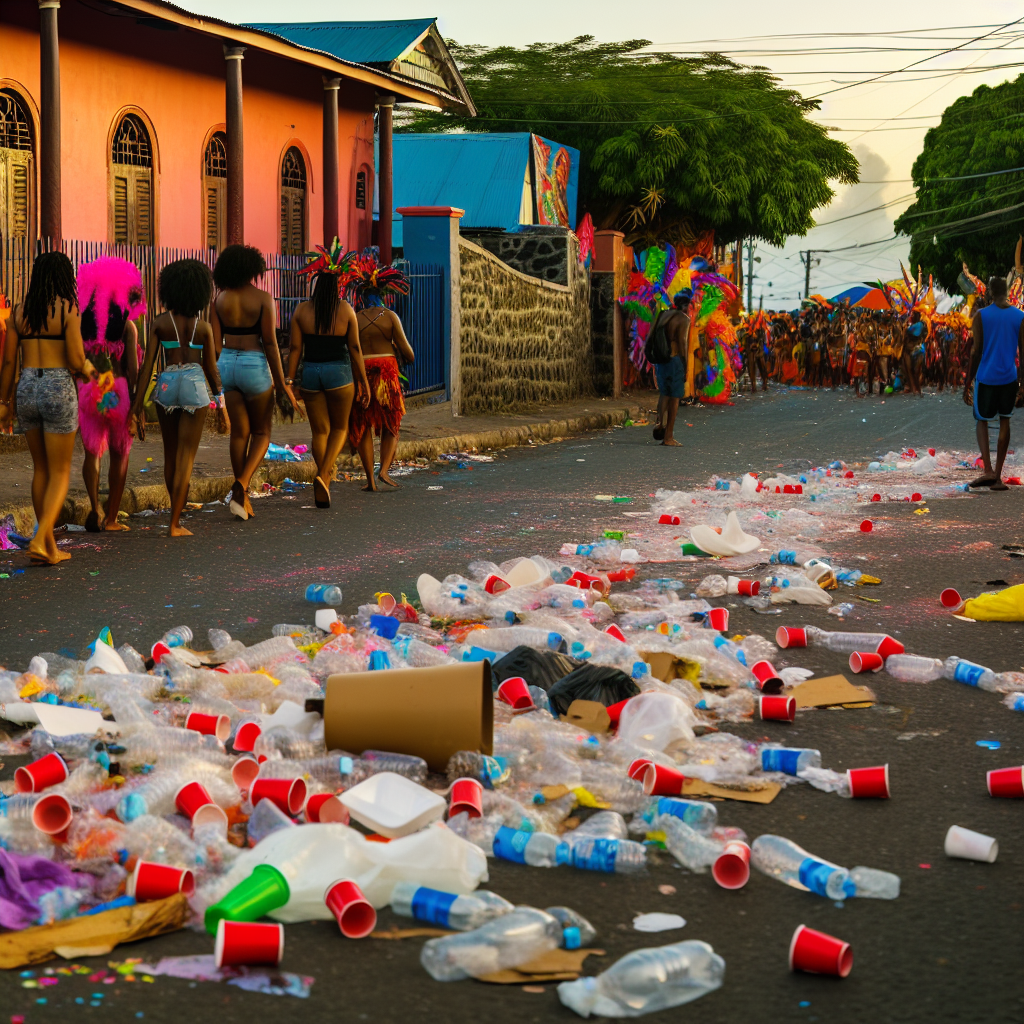Carnival 2025: The Aftermath of Plastic Pollution in Trinidad and Tobago.

Every year, Trinidad and Tobago comes alive with the exuberance of Carnival—a celebration that unites communities, honors cultural heritage, and brings joy to countless participants. However, as Carnival 2025 approaches, environmental advocates are raising alarms about a recurring issue that continues to shadow these vibrant festivities: the surge in plastic pollution.
The Carnival Paradox
Carnival is a time of splendor, marked by elaborate costumes, parades, and street parties. Yet, beneath the glitter and revelry lies an environmental paradox. The temporary explosion of plastic use—through single-use cups, straws, decorative items, and packaging—results in a post-event deluge of plastic waste. When left unmanaged, this waste poses severe risks to local ecosystems, marine life, and public health.
Recent reports have highlighted that Trinidad and Tobago is grappling with an escalating plastic problem. According to The Guardian, Trinidad and Tobago has emerged as one of the region’s major plastic polluters, ranking as the sixth largest contributor. This statistic underscores not just a local but a regional crisis that demands urgent attention.
The Environmental Toll
Plastic pollution is not merely an aesthetic nuisance. Once discarded, plastics break down into microplastics that infiltrate the soil and waterways, damaging wildlife and entering the food chain. Marine species, in particular, face significant threats—from ingestion and entanglement to habitat disruption. The environmental footprint left behind after Carnival can have long-lasting impacts, far outweighing the short-lived festivities.
Holding Plastic Producers Accountable
Addressing the issue of plastic pollution requires more than just community cleanups—it calls for systemic change. In an incisive article by PIRG titled “Holding Plastic Producers Accountable,” experts argue that the responsibility for plastic waste should extend beyond consumers and municipalities to the producers themselves. The concept of Extended Producer Responsibility (EPR) pushes companies to reconsider the life cycle of their products—from production to post-consumer waste management. By incentivizing sustainable practices and innovative packaging solutions, producers can play a pivotal role in reducing the environmental burden.
Charting a Path Forward
Tackling the plastic crisis in the wake of Carnival requires coordinated efforts across multiple fronts:
- Enhanced Waste Management: Municipalities must bolster their waste collection and recycling infrastructure, especially during peak periods like Carnival. Strategic planning and rapid response teams can mitigate the immediate environmental impact.
- Policy and Regulation: Governments need to enact and enforce policies that promote sustainable practices. Regulations that enforce EPR can ensure that companies contribute to the cleanup and recycling of their products.
- Public Awareness and Engagement: Citizens can drive change by reducing single-use plastics and participating in community cleanups. Educational campaigns can empower the public to make environmentally responsible choices.
- Innovation in Packaging: Businesses should be encouraged to adopt biodegradable or reusable alternatives. Collaboration between government, industry, and environmental groups can foster innovation that minimizes plastic waste.
A Call to Action
As Trinidad and Tobago readies itself for Carnival 2025, the celebration of culture and community must be harmonized with a commitment to environmental stewardship. The legacy of Carnival should not be marred by a trail of plastic pollution. Instead, it can serve as a turning point—a catalyst for change that holds plastic producers accountable and champions sustainable practices.
By addressing the challenges of plastic waste head-on, Trinidad and Tobago can set a powerful example for the region. The onus is on everyone—from policymakers and industry leaders to everyday citizens—to transform Carnival’s afterglow into a beacon of environmental responsibility.
Let Carnival 2025 be not only a celebration of tradition and creativity but also a call for action against the plastic pollution that threatens our natural heritage.

